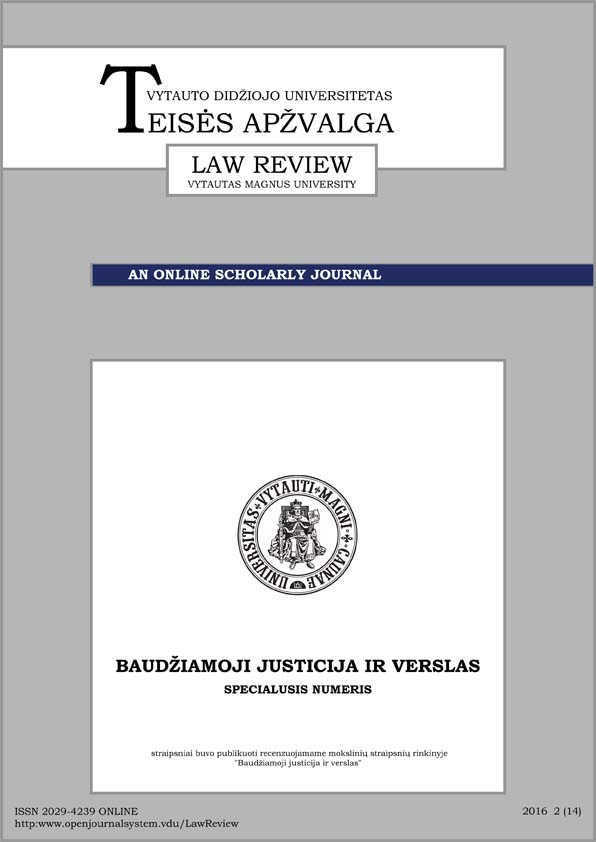Teisingumo principas skiriant bausmę
The Principle of Justice in Sentencing
Author(s): Romualdas DrakšasSubject(s): Law, Constitution, Jurisprudence, Criminal Law
Published by: Vytauto Didžiojo Universitetas
Keywords: Criminal law; Principle of justice; Sentencing; Purposes of sentencing; Human rights and freedoms
Summary/Abstract: Teisingumo principas laikomas vienu iš pagrindinių tiek Europos, tiek ir kitų šalių baudžiamosios teisės principų. Šiandieninio pasaulio politinės realijos verčia iš naujo įvertinti šio principo, užtikrinančio žmogaus teises ir laisves įgyvendinant baudžiamąją atsakomybę, svarbą. Nors straipsnyje daugiausia dėmesio skiriama Lietuvos baudžiamosios teisės analizei, tačiau kai kurie baudžiamųjų įstatymų lyginamieji aspektai, autoriaus nuomone, leidžia aiškiau atskleisti šio principo turinį, jo svarbą ir reikšmę. Teisingumo principas nagrinėjamas atsižvelgiant į baudžiamajame įstatyme įtvirtintus bausmės tikslus, baudžiamosios teisės paradigmą – teisingumo principo įgyvendinimą, egzistuojančią teismų praktiką. In this article, the author continues the series of articles about the realization of the principle of justice in criminal proceedings. The objective pursued in the work is achieved by evaluation of the three aspects: 1. Relation of the purpose of punishment defined as a will to ensure the implementation of the principle of justice, with the other purposes of punishment; 2. Significance of the principle of justice in sentence individualisation process; 3. Soundness of the existence of exceptional circumstances, allowing the application of part 3 of Article 54 of the Criminal Code. Having assessed the Lithuanian and foreign authors' approach to the principle of justice, also, having reviewed different arguments, in this article, the author provides the following conclusions and recommendations: 1. The imposition of a fair punishment implies the necessity to take into account every purpose of the punishment set forth in Article 41 of the Criminal Code, but it can be described simply: the imposition of a fair punishment is a process, which ensures the implementation of the principle of justice. It is therefore not necessary to mention in the criminal law all the purposes of punishment, except the will to ensure the principle of justice. It is proposed to amend part 2 of Article 41 of the Criminal Code and word it as follows: The purpose of a penalty shall be ensuring the implementation of the principle of justice.2. It is considered that a soviet provision incumbent in Lithuania stating that punishment is only a legal expression of mutual relationship between a guilty person and the state is incompatible with the principle of justice and should be discarded because such bureaucratic and formal attitude to the application of law disregards the essence of punishment individualization.3. While deciding the matter of expediency of the application of part 3 of Article 54 of the Criminal Code, the court must consider all the facts and a whole; it is to assess whether the punishment provided for in the sanction is fair for the certain person. The court should not really create "unexplainable" exceptional circumstances, nor should they artificially extract them from the case, as this would violate the principle of justice enshrined in the criminal law.
Journal: Teisės apžvalga
- Issue Year: 2016
- Issue No: 2(14)
- Page Range: 75-97
- Page Count: 23
- Language: Lithuanian

